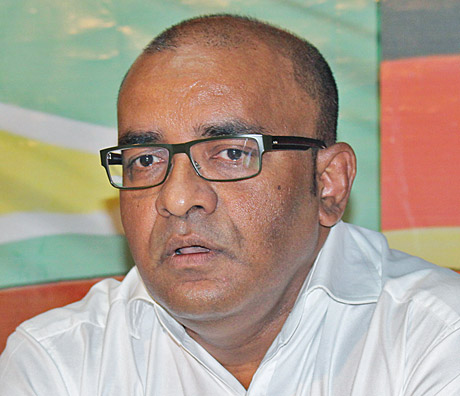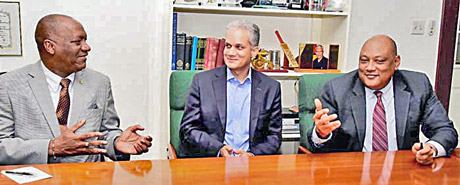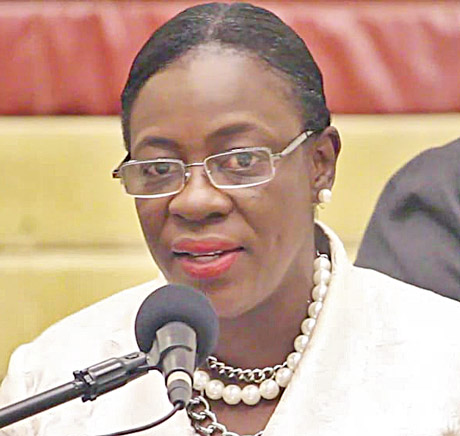Guyana Focus
and compliance

At the same time, it has lowered taxes on wages by increasing the personal tax exemption limits but on the other hand has projected an increase in total revenues – giving with one hand and taking back more on the other.
The government has also appointed a Tax Reform Committee (TRC) to undertake a detailed assessment of the tax system.
But the government’s efforts at increasing revenue collection have not necessarily been met with open arms in a country where tax avoidance and tax minimization are prevalent.
For instance, the expansion of the value added tax (VAT) to include basic necessities such as medical services, water, and electricity – albeit with minimum thresholds – has been met with much criticism, whereas the application of the VAT on tuition fees for private schools has led to street protests.
Arguably, resistance to the VAT comes on the back of earlier promises to reduce the tax. Though the government reduced the VAT from 16% to 14%, total VAT revenues are forecast to increase due its broader application.
Earlier this year, Finance Minister Winston Jordan noted that the reason for delaying the proposed phased reduction of the VAT is because the government was awaiting the establishment of the TRC, which is now operational. The TRC is expected to come up with recommendations on various tax and revenue initiatives.
According to the 2017 budget, total current revenue in 2016 was $174.8 billion, of which the Guyana Revenue Authority (GRA) accounted for 85.4% or $149.3 billion. In 2017, total current revenues are projected to increase by $11.2 billion to $186 billion. Of this amount, the GRA is expected to account for $162.6 billion or 87.4% of total revenue, an increase of $13.3 billion or 8.9% when compared to 2016.
Of the GRA’s collections, Internal Revenue is projected to bring in $67.05 billion compared to $67.8 billion in 2016, a 1.1% decrease, while Value-Added and Excise Taxes are expected to earn $79.7 billion compared to $66 billion in 2016, an increase of 20.8%. Collections by the Customs and Trade Administration are anticipated to be $15.8 billion, an increase of 2.1%.
From a policy standpoint, the government has announced several measures to enhance tax administration.
Among these measures are the implementation of an Excise Stamp Program, which involves affixing a high security revenue stamp to excisable goods such as alcohol and cigarettes to indicate that the required taxes have been paid on the product to limit smuggling.
It is also proposed to increase the statute of limitation for tax audits from three years to five years, giving the GRA more time to examine taxpayers’ records, thereby enhancing enforcement and compliance efforts; repealing the rights of taxpayers to get an extension to pay VAT due; repealing the rights of non-residents to apply for a refund of the VAT; imposing penalties for late filing and late payment of taxes; imposing penalties for the failure to keep proper books and records and for failing to produce books and records when requested; and applying an annual interest rate of 18% on unpaid taxes. The GRA will also now have the right to garnish the bank accounts of taxpayers who fail to pay arrear taxes.
Offences committed against the Income Tax Act would also now be subjected to substantial increases in fines. For instance, non-resident companies failing to keep accounting records in Guyana will be subject to a fine of $1 million, while new businesses will be given a maximum of three months to inform the GRA that they have started operations or be subject to a penalty for breaching the tax laws.
From a revenue collection perspective, the departure or travel tax has been increased from $2,500 to $3,500; and the fee for new passports has been increased to $6,000 from $4,000, although persons 65 years and above will be exempt from the payment of the passport fee.
It is proposed to increase fees for transfer of motor vehicle registration for motor cycle and other vehicles, ranging from $5,000 for motor cycles to $25,000 or 2% of sale price, whichever is higher.
Driving permits issued to drivers residing abroad but visiting the country temporarily would now be subject to a fee of $2,000; and persons requiring a Letter of Authenticity for verification of their drivers' licences would also be subject to a fee of $2,000.
A number of other fees and taxes would also be reviewed with the intent of increasing them, including the capital gains tax on property, liquor licence applications and renewals, and customs duties which are based on a 20-year old schedule.
In an effort to plug tax loopholes, the TRC is examining the revenues lost from tax incentives, tax holidays to individuals, groups and companies and from duty free goods, including for diplomats, public officials/officers and re-migrants.
Among the types of incentives that contribute to revenue loss are exemptions such as customs duties, VAT, and excise taxes in areas such as fuel products, industrial inputs and passenger cars; VAT in industrial inputs; excise tax in fuel products and passenger cars and tax holidays to both local and foreign companies.
The TRC noted that the revenues lost for exemptions granted to diplomats for the year 2014 alone was $1.4 billion, while the revenues lost for incentives granted to re-migrants was $2.1 billion and to public officials $1.4 billion.
To put the total revenue loss in perspective, the TRC stated that for the year 2014, the revenue loss from exemptions, alone, relating to companies/businesses was equivalent to $43.2 billion, and for all beneficiary categories, $55.6 billion. In 2015, the revenue loss from exemptions alone, relating to companies/businesses, was $56.6 billion.
Companies and businesses accounted for about 78% of the total value of exemptions, in terms of revenue lost to the national treasury in 2014.
In addition, the TRC said that the total corporate tax remissions/exemptions were equivalent to 31% of Central Government tax revenue and exceeded actual corporate tax revenue in 2014.
Evidently, tax incentives, especially tax holidays, were granted without proper due diligence and accountability, leaving scope for misuse and fraud. The TRC also noted the apparent absence of mechanisms for post-approval audit or review.
The Guyana government’s bold move in reforming its tax system and improving tax and revenue collection is necessary for nation building. It might not be able to plug all the tax leaks but ensuring fairness in implementation is essential.
It is also imperative that tax incentives be granted based of the potential contribution of the recipients to the economy and that they are held accountable for the benefits received. At the same time, the government must have the resources to monitor compliance.
Comparatively, new incentives created by the government in specific areas, for instance, green energy, must be scrutinized not only for their relevance but also to ensure that the recipients of the incentives are qualified candidates.
More important, taxpayers have a right to know how their taxes are used, making the government itself accountable to the people.
three months' suspension,
revocation possible
The unnamed official said Cabinet has also agreed that if at the end of the three months City Hall and the investor do not iron out a number of the problems identified in the review by the Finance Ministry, “it (the contract) could very well be scrapped altogether.”
Minister of State, Joseph Harmon is expected to announce the details of the suspension. SCS has earmarked US$10 million for the parking meter project and has agreed to give City Hall 80 percent of gross earnings. Latest figures show that due to the boycott of the parking meters, City Hall’s 80 percent was equal to just over GYD$250,000 last month.
Cabinet members from both the Alliance For Change (AFC) and A Partnership for National Unity (APNU) reportedly felt very strongly about the adverse political impact the parking meter project was having on the governing coalition
The decision by Cabinet to suspend the project came as weekly protest action by the Movement Against Parking Meters continued into its 5th week, with signs of intensification.
The AFC on February 7, 2017 had called for the parking meter project to be suspended and reconsider pertinent aspects of the Finance Ministry’s review.
The AFC said that the available documentation suggests that the municipality may have overreached its authority on a number of matters including taxation arrangements, traffic arrangements and road ownership. Concerns have also been raised about the monopolistic and exclusive enjoyment by SCS. The accord virtually guarantees SCS another 20 years after the current contract expires providing the company adequately performs its obligations and subject to the approval of the city. ”
The contract provides for SCS to initially install 2,500 meters and phase in more based on demand and public reactions. The agreement also allows SCS to secure lands to establish garage parking facilities and to eventually purchase those lands.
Transparency Institute of Guyana, Private Sector Commission and the Georgetown Chamber of Commerce have also called for the contract to be scrapped, citing no public tender, lack of transparency among all City Councillors about the contract, the adverse impact of the parking meters on businesses in the City and the exorbitant cost of metered parking.
City Hall has maintained that it badly needs the cash to help fund rehabilitation and maintenance of the drainage system and road network.

Delivering the feature address, at the first in a series of planned engagements organised by the Guyana Manufacturing and Services Association, Jagdeo said that he does not see Guyana sustaining its balance of payments (BOP) in the long term.
He supported this position by citing a lack of Foreign Direct Investment (FDI) and increased domestic spending which he said has created an increase in the demand for foreign currency that has placed pressure on the local exchange rate.
These realities are compounded by a lack of a clear economic plan from the present government.
“I’m a politician and I tend to be partisan,” Jagdeo told the crowd at the Pegasus Hotel before noting that even those nonpartisan persons he has engaged on the issues are “just as lost about where the country is heading and a clear vision for taking it there just doesn’t exist.”
According to Jagdeo the percentage of national investment financed through domestic expenditure increased from 58% in 2014 to 80% in 2015 and has continued to increase with 90.2% in 2016 and a projected 91.5% in 2017.
“National Investment is being financed from domestic sources and not foreign capital. This means that local savings will deplete leading to an increase in interest rates,” the former head of state contended.
Also likely, he said is a continuing increase in the demand for foreign currency which will put pressure on the BOP and exchange rate.
He stressed that with FDI drying up and net transfers including remittances reducing there is a “real growing pressure on the exchange rate”.
This along with a “crisis of confidence” has led to increasing demands for foreign currency for transactional purposes.
“People are concerned. There is no money in the banking system. I know of banks that are selling currency at $230 to 1. Things are going to get progressively worse,” he said.
Businessmen have complained privately that they are now being asked to pay as much as $220 for the US dollar for some transactions at commercial bank branches and that is, when there is availability.
Jagdeo further noted that while such depreciation would normally be good for the export sector, increased taxes and “silly” regulations on the supply side means Guyanese exporters will not benefit.
Further the high import content of Guyana’s economy means that cost of living will increase as the purchasing power of the currency decreases.
“No amount of talking from the Central Bank, no amount of suasion is going to change the reality of the banking system. The markets are not changing. They can’t bully the banks into keeping the posted rate constant,” Jagdeo stressed.
The Central Bank has insisted that there is sufficient currency in the market to meet the local demand.
On February 2 this year, it distributed circulars to the bank and non-bank cambios limiting the spread between the buying and selling rates for currency to $3. It also issued one to money transfer agencies.
Each of the circulars said that the Bank of Guyana is taking steps to “improve the efficiency, depth and liquidity of the foreign exchange market and in accordance with section 7 of the Dealers in Foreign Currency (Licensing Act) 1989”.
The circular to commercial banks on the operation of bank cambios stated that they must reduce the spread between the buying and selling rates “to no more than G$3, and no more than G$1.50 in wire transfers”.
Further, the circular said that sales of foreign currency to large importers by commercial bank cambios should only be countenanced upon the presentation of a valid import invoice.
The circular added that credit cards issued by commercial banks are only to be used for the purchase of goods and services for non-commercial purposes and not business activities.
The circular to non-bank cambios stated that they must also reduce the spread between the buying and selling rates to no more than $3 and that the selling rate of all foreign currencies must reflect the board rates displayed by the cambio.
In their circular, money transfer agencies were told that they “shall sell their monthly net inflows to licensed bank cambios with a maximum of 25 percent of such inflows being sold to any one of such cambios”.
in to investigate
According to Region Four officials, last week the Regional Executive Officer (REO), the police and the Ministry of Communities have been apprised of the matter.
The fraud was reportedly uncovered by councillors a few weeks ago after routine checks.
It is believed that staffers, including one involved in collecting rates and taxes, allegedly hatched a scheme to steal the monies. The theft took place over a period of 18 months.
Using books similar to what the NDC has, the staffers reportedly issued receipts to unsuspecting residents of the Grove and Diamond areas.
However, under tighter monitoring by the new NDC elected last year, checks by councillors reportedly uncovered anomalies with the serial numbers on the receipts. The numbers printed on the receipts issued to a number of homeowners had them printed differently from what the NDC had.
Checks later made found that more than $20M did not make it into the NDC accounts over an 18 month period. A number of persons have been questioned into the fraud.
It is not the first time that NDCs have been facing fraud investigations. A number of overseers in the past have been under investigations but nothing much has come out.
With lax record-keeping and a seeming unwillingness to go after delinquent rates and taxes payers, many of the NDCs which were without elections for almost two decades pending law reforms, were in poor condition.
However, elections last year have brought fresh hopes with new faces as councillors largely in place.

A Guyanese by birth, Dr. Mangal brings with him a wealth of technical expertise and experiences in the area of oil and gas development, the Ministry of the Presidency announced last Friday.
The disclosure was made Monday at State House, where President David Granger, Minister of State, Joseph Harmon and Minister of Natural Resources, Mr. Raphael Trotman met with Dr. Mangal.
Minister Harmon said that a contract has been signed, bringing into effect Dr. Mangal’s appointment.
“He will be advising us on the development of the petroleum industry. He will be advising the Minister and the Ministry of Natural Resources on matters of policy. We are happy to have a Guyanese possessing the skills that are now available to us,” he said.
Similar sentiments were expressed by Minister Trotman under whose purview the petroleum industry falls. He said that the Government has been engaging with, and receiving advice from, Dr. Mangal since last year. “Now that this is a formalised arrangement we are very happy. He comes at a time when we are continuing to prepare for first oil as it is called, in 2020,” he said.
Importantly, the appointment of an expert such as Dr. Mangal was recommended last year by consultant Anthony Paul, who compiled the Rapid Analysis of the State of Readiness of Guyana’s Hydrocarbon Regulatory Framework report that was facilitated by the United Nations Development Programme (UNDP).
“I think this appointment of Dr. Mangal is timely. It is necessary and we look forward to working with him to move things further apace… he has experience from all sides; the academic, the theoretical and the practical, which is vitally needed at this time,” the Natural Resources Minister said.
Meanwhile, Dr. Mangal said that he will be looking at the issue of energy generation in a holistic manner in keeping with the country’s ‘green agenda’. “It’s not only the power sector and the green agenda but it’s also about infrastructure, the revenue from the petroleum and the needs of the sector as whole…
“The power sector in Guyana also needs to be looked at in terms of how natural gas can be used instead of diesel or whatever is being used right now,” he said.
He said that his first task will be to engage with ExxonMobil officials at its Guyana location as well as at its Houston, Texas, operations where he is based, to get a full understanding of their development plans and try to match that with the country’s objectives. He will be helping with the Ministry of Natural Resources with its work with other companies that are engaged in offshore drilling in Guyana.
Dr. Mangal has a Doctorate in Offshore Geotechnical Engineering from the University of Oxford and a Bachelor’s Degree in Civil Engineering from the University of Edinburg. He worked in marine and oil and gas industries for the past 18 years in various parts of the world including the United States, West Africa, and the Philippines.
Guyana, through US-owned ExxonMobil, has discovered a large deposit of oil, in offshore concessions and is moving to start production in 2020.
However, there has been deep worry about Guyana’s capacity to handle the negotiations and introduce the necessary legislations and monitoring mechanisms in time.
holidays mix-up

“I would begin by saying Happy Phagwah, Happy Holi. On Sunday, March 12th, here in Guyana and around the world, Hindus will be celebrating Diwali, the Festival of Lights,” she stated, not realising her faux pas as she continued her prepared speech.
A minute later, she did a double take of the same blunder.
When compared with her Diwali speech last year, her Phagwah speech this year bore much resemblance – causing many to conclude that it was recycled.
Public outcry surround the Minister not realising her mistake, not apologising for it and not finding it important enough to take the time to write a fresh speech about Phagwah.
Interestingly also, the Culture Minister was absent from major cultural events hosted on March 12 in observance of the occasion, including those at the Indian Cultural Centre (ICC) and the Providence National Stadium where other Government Ministers had gathered.
The Social Cohesion Minister, during an interview with the press at the Phagwah Mela at the ICC, suggested that Minister Henry was probably busy.
Commenting on the Culture Minister’s holiday mix-up, Dr Norton conceded that the situation warranted an apology.
“There is nothing wrong in an apology…I went public, and I apologised to the whole of Guyana because the occasion called for it,” he stated.



To advertise in ICW call
Call 905-738-5005